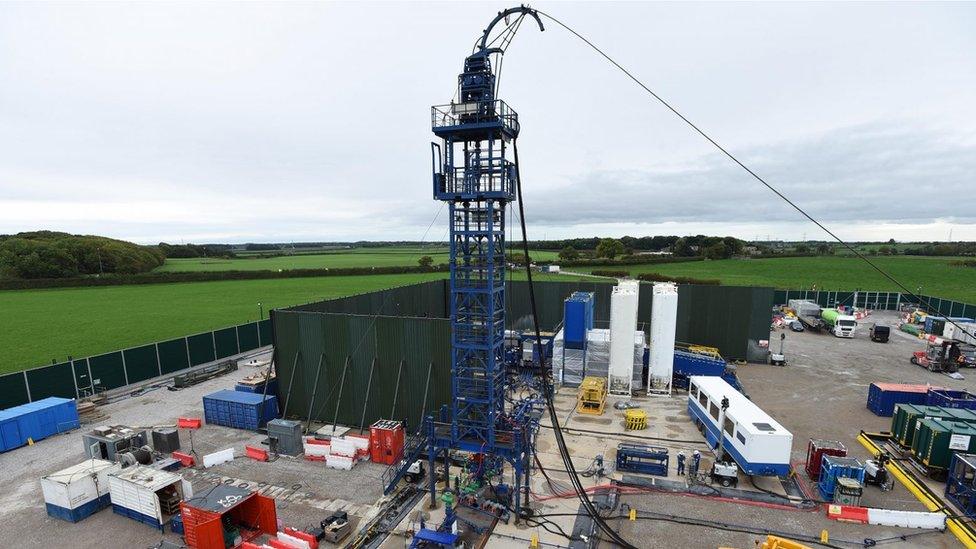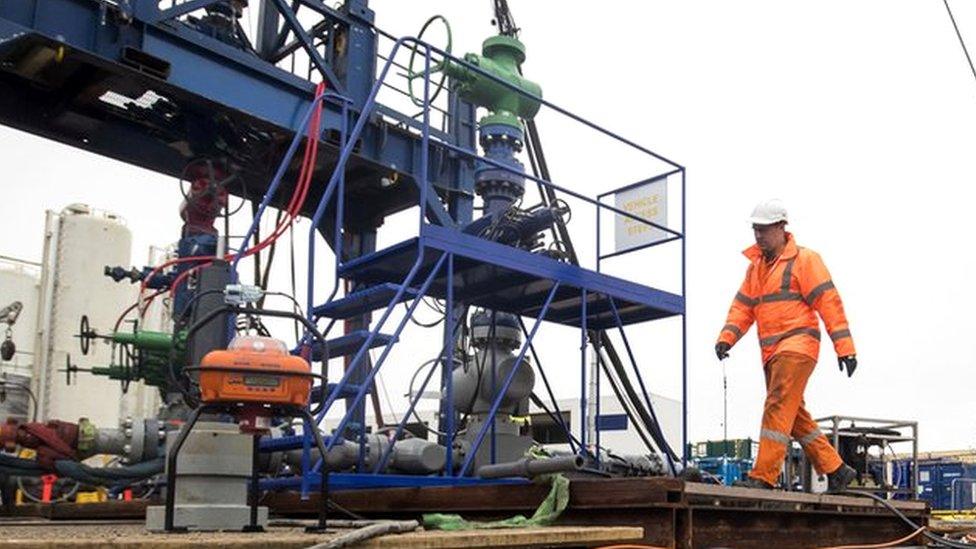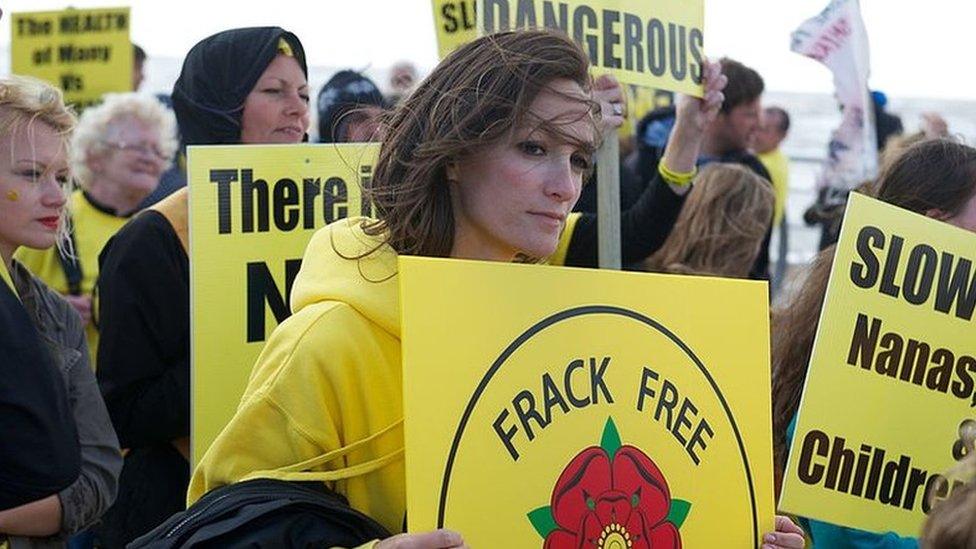Welsh Tories say Wales' fracking ban should stay
- Published

Welsh Conservatives in the Senedd have backed Wales' keeping its ban on fracking, despite the Tory UK government's decision to end a mortarium in England.
Labour Welsh ministers have opposed any new oil and gas extraction, including fracking, for years.
The UK government argued an end to the ban was needed because of the impact of the war in Ukraine on energy supplies.
But the Welsh Tory group said it will "continue to support the moratorium".
A former Conservative Welsh Secretary said there is no appetite for fracking in Wales and that offshore wind has a "far bigger role to play".
On Thursday the Welsh government confirmed it was not changing its policy, saying UK wide gas reserves are too small to "meaningfully" affect prices.
The Welsh government opposes all oil and gas extraction, regardless of whether it uses fracking or not, because of the impact on climate change.
It has held onshore licensing powers since 2018.
Fracking is a way of mining gas and oil from shale rock, using a high-pressure mixture of water and sand.
Concerns about earth tremors led to a moratorium on fracking in England in 2019.
Janet Finch-Saunders, shadow minister for Energy, said her group "will continue to support the moratorium on fracking in Wales.
"We will encourage the Welsh government to use the latest scientific evidence to direct policy in Wales."
A spokesman for the Labour government said it does not support "the UK government's position on the expansion of oil and gas exploration".
"We are fully committed to supporting our net zero commitments and will not support applications for hydraulic fracturing or issue new petroleum licences in Wales."
In the Senedd on Tuesday, First Minister Mark Drakeford said: "We will not solve the energy crisis by reverting to ways of supplying energy that have done so much damage to our planet."
The Conservative manifesto for the 2019 UK general election said fracking would only be reconsidered if "the science shows categorically that it can be done safely".
Former Conservative Welsh Secretary Stephen Crabb, asked by BBC Wales if Welsh ministers should allow fracking, replied: "No."
The Preseli Pembrokeshire MP said: "I don't think there's an appetite for fracking in Wales.
"I think it's prudent that we make best use of all of our domestic energy resources. But I think things like floating offshore wind, off the west Wales coast, have a far bigger role to play in our energy future than fracking."
'Weaponisation of energy'
"In light of [Russian President Vladimir] Putin's illegal invasion of Ukraine and weaponisation of energy, strengthening our energy security is an absolute priority," UK government Business and Energy Secretary Jacob Rees-Mogg said in a statement announcing the end of the ban.
Hywel Williams of Plaid Cymru told the Commons that Thursday was the date of the 1934 Gresford mining disaster, where 266 men and boys were killed.
"In Wales, we know the cost of dangerous fossil fuel extraction so that others, remotely, can profit," he said, adding that Gresford had been mooted as a fracking site. He asked Mr Rees-Mogg if he had any intention of returning powers on Welsh oil and gas to Westminster.
"Mr Speaker, I am not seeking to upset the devolution settlement," he said.
The decision to end the ban in England came alongside a scientific review by the British Geological Survey (BGS), which found there was still a limited understanding of the UK's shale reserves and drilling impacts.
Related topics
- Published22 September 2022

